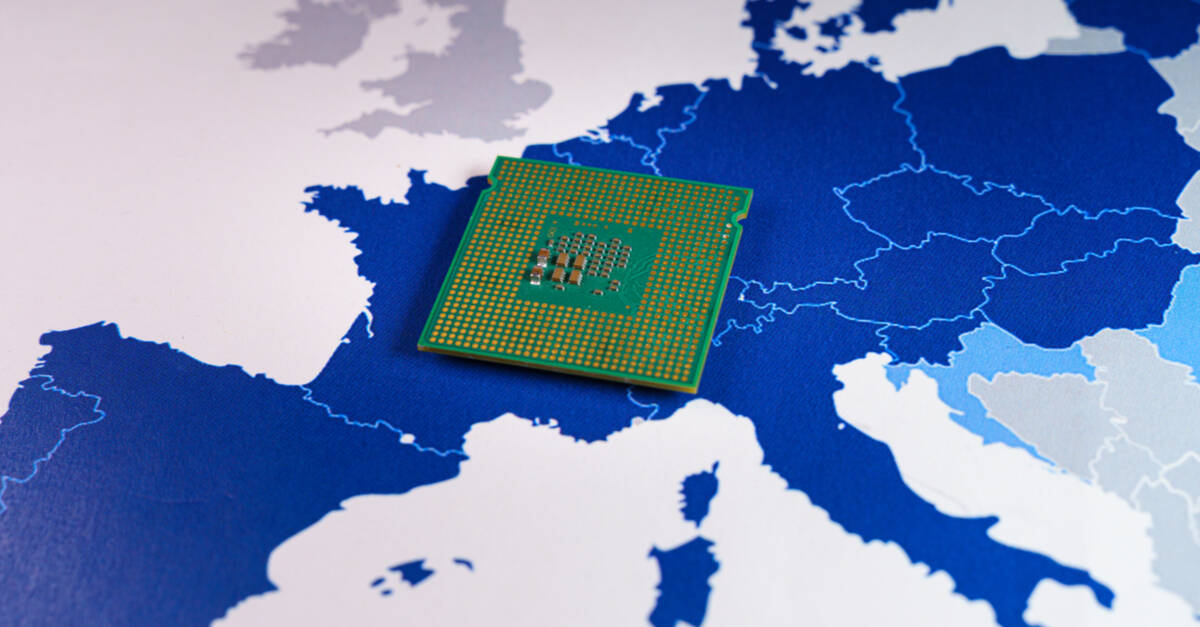EU Parliament Sets Out Two Draft Bills To Forge Ahead With Chips Act

The EU is making slow but steady progress in boosting its domestic semiconductor industry with two draft bills ready for debate in European Parliament, news that chip giant Intel in particular is pleased with.
Announced around this time last year, the European Chips Act proposed measures to bolster both manufacturing capacity and innovation in the European industry, partly as a response to chip supply chain issues resulting from the pandemic.
Now the European Parliament has approved its position on the proposed legislation and said it is ready to start negotiations with member state governments on the Chips Act itself. It also approved a second draft bill on the Chips Joint Undertaking, an investment tool with the aims of promoting growth in the sector and striving for EU leadership in this field in the mid to long term.
On the Chips Act [PDF], MEPs have endorsed the text put forward by the Industry Committee. This is said to focus on next-generation semiconductors and quantum technology, but also on the creation of a network of centers to combat skills shortages in research, design and production.
MEPs also voted to back the Chips Joint Undertaking proposal, implementing most of the measures put forward under a "Chips for Europe" initiative, as part of the wider Horizon Europe program, the stated aims of which are to support large-scale capacity building through investment in EU-wide research and development infrastructure.
This will initially pool together about €11 billion ($11.78 billion) drawn from EU central funding, EU countries, and the private sector. The Chips Act aims to eventually unlock €43 billion (£46 billion) in funding for the European semiconductor sector.
Rapporteur for the Chips Act, MEP Dan Nica said in a statement: "The EU Chips Act should establish Europe as a key player in the global semiconductors arena. Not only does the budget need to be commensurate with the challenges and funded through fresh money, but the EU should lead in research and innovation, have a business-friendly environment, a fast permitting process and invest in a skilled work force for the semiconductor sector."
One company that stands to benefit from the Chips Act funding is Intel, which has been in talks with more than one European government about building manufacturing facilities within their borders.
Perhaps not surprisingly, the Santa Clara giant is pleased with the latest progress, and has even published a blog post praising the latest moves.
- Chipmakers threaten to defect to US, EU if UK doesn't get its semiconductor plans sorted
- Subsidies? All UK chip industry needs is tax, rule tweaks, claims rightwing thinktank
- British government torched over lack of chips strategy
- Intel angles for more subsidies to build German mega-fab
"Today, we saw what can happen when great ideas and good politicians come together. In an impressive show of force, the entire European Parliament united around a balanced and future-proof position on the EU Chips Act," wrote Intel's Vice President of European Government Affairs, Hendrik Bourgeois.
"The European Parliament is supporting a great idea here, supporting and coming up with meaningful solutions to the problems faced by the wider tech ecosystem enabled by semiconductors," he added, concluding: "As we have been during the entire process, Intel stands ready to play its part and support the negotiators in reaching a deal that works for Europe and European industry."
Intel plans to construct a "mega fab" near Magdeburg in Germany, and had already been penciled in for €6.8 billion ($7.2 billion) in subsidies from the German government, enough to cover roughly 40 percent of the original expected construction costs.
But the company has yet to disclose a date for when work will begin on the site, and earlier this month was asking for a further €3.2 billion ($3.4 billion) as it claims costs have increased since the project was announced.
Intel has also floated plans to build a semiconductor packaging and assembly facility somewhere in Italy, and was reported last year to be close to sealing a deal worth at least $5 billion with the Italian government, but CEO Pat Gelsinger told reporters last month that a final decision had not been made.
Meanwhile, the UK is lagging behind without even an official semiconductor strategy. The British government had planned to outline one last year, but this has been delayed several times and responsibility for it may now have shifted to a different department following a reorganization this month that created the Department for Science, Innovation and Technology (DSIT).
UK semiconductor companies are threatening to relocate to the US or Europe if the British government does not come up with a plan to support the industry, as The Register reported this week. ®
From Chip War To Cloud War: The Next Frontier In Global Tech Competition
The global chip war, characterized by intense competition among nations and corporations for supremacy in semiconductor ... Read more
The High Stakes Of Tech Regulation: Security Risks And Market Dynamics
The influence of tech giants in the global economy continues to grow, raising crucial questions about how to balance sec... Read more
The Tyranny Of Instagram Interiors: Why It's Time To Break Free From Algorithm-Driven Aesthetics
Instagram has become a dominant force in shaping interior design trends, offering a seemingly endless stream of inspirat... Read more
The Data Crunch In AI: Strategies For Sustainability
Exploring solutions to the imminent exhaustion of internet data for AI training.As the artificial intelligence (AI) indu... Read more
Google Abandons Four-Year Effort To Remove Cookies From Chrome Browser
After four years of dedicated effort, Google has decided to abandon its plan to remove third-party cookies from its Chro... Read more
LinkedIn Embraces AI And Gamification To Drive User Engagement And Revenue
In an effort to tackle slowing revenue growth and enhance user engagement, LinkedIn is turning to artificial intelligenc... Read more

